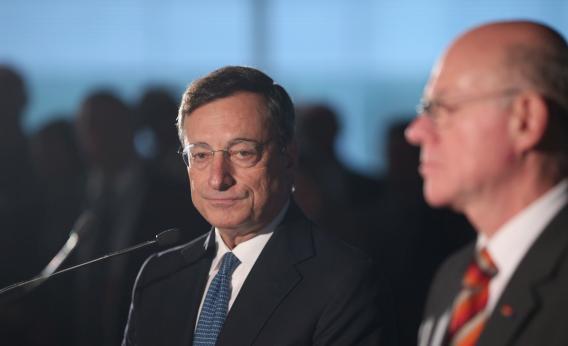One of the odder trends this winter is the widespread sense that the eurozone crisis is “over” and Mario Draghi’s “whatever it takes” speech saved the day.
It’s not that I think the conventional wisdom is wrong, exactly. But the eurozone has slid back into recession over the course of 2012 and if anything the recession seems to be getting worse. Not only are Greece and Spain in tatters and Ireland basically treading water, but German GDP shrank 0.5 percent in the forth quarter. That’s hardly the worst recession on the record books. And if Germany improves a little in Q1 they may even avoid technical recession altogether. But Germany, you’ll recall, is the country that’s supposed to be doing well. And that’s not a “doing well” number. It’s not even close. Things are so bad that EU officials are touting Latvia as a success story even though Latvian GDP is still 16 percent below peak level.
Worst of all, as Ambrose Evans-Pierce writes the European Central Bank seems to have entirely washed its hands of the situation, deciding that as long as there’s no acute banking crisis they don’t need to care about anything else. This is, among other things, exactly the attitude from the Trichet-Weber years that let the acute banking crisis develop. Over the long-term, it’s all tied together. Banks and sovereigns can’t be solvent if citizens don’t have incomes, Germany can’t export if Spain can’t import.
